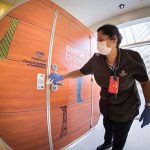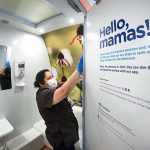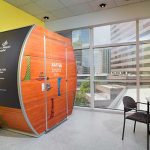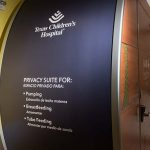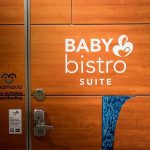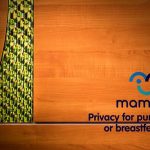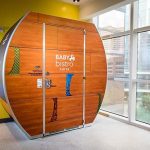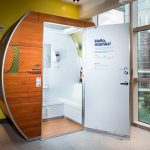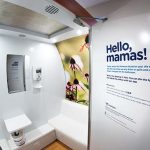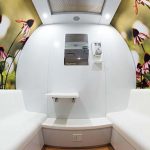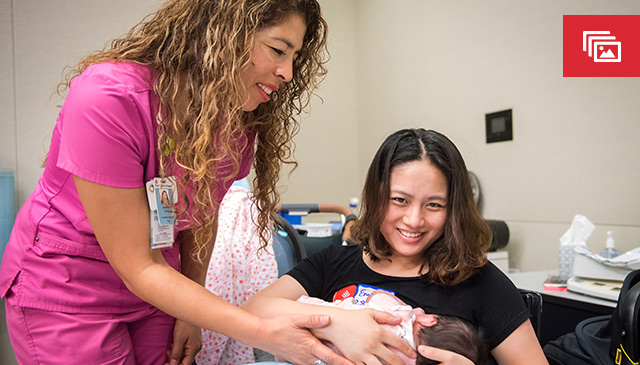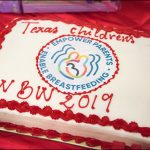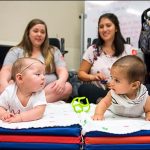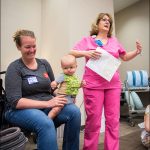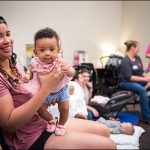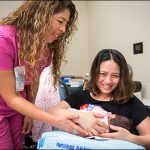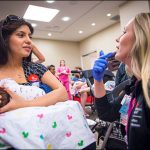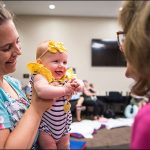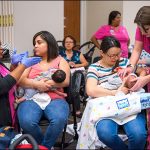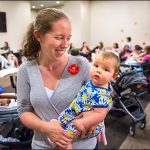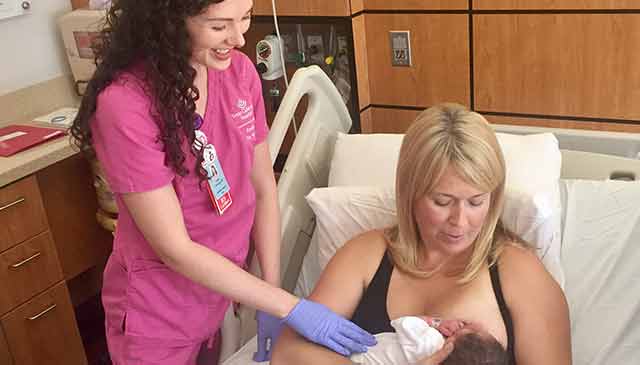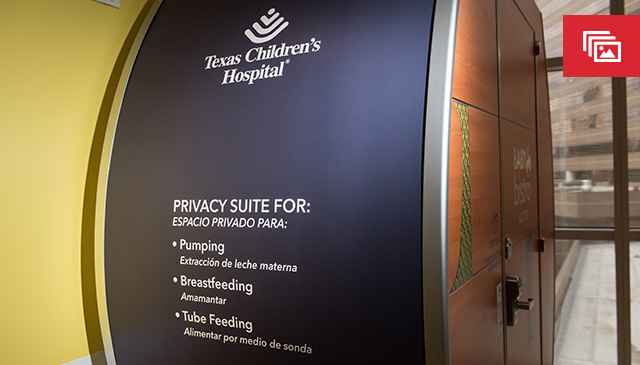
Texas Children’s is always looking for ways to improve the experience of our patients, families and employees during their time with our organization. We are especially sensitive to our breastfeeding moms and tube feeding parents.
To better support these groups, Texas Children’s has purchased a Mamava, which is a self-contained, mobile pod with benches, a fold-down table, an electrical outlet for plugging in a breast pump, and a door that can be locked for privacy. The 4-foot by 8-foot suite is meant for individual use, but can fit more than one person, as well as mothers with babies and other children in tow.
Named the “Baby Bistro Suite” in honor of our ongoing commitment to breastfeeding moms provided at the Baby Bistro, the pod was recently installed on the fifth floor of Wallace Tower and is now open for use. To use the pod, a visitor or employee will reserve their time using the Mamava app or request a keypad-code from guest services. Information about the suite will also be added to wayfinding signage.
“We are thrilled to be able to offer our breastfeeding moms and tube feeding parents such a comfortable, clean, distraction-free space to nourish their children,” said Nancy Hurst, director of Women’s Support Services. “I also am proud of Texas Children’s for its continued commitment and dedication to the overall well-being of these patients, family members and employees.”
Texas Children’s is the first hospital in Texas to unveil a Mamava suite at one of its facilities. Employees from several departments including, Infection Control, Facilities, Supply Chain, Contracts, Surgery, Patient Experience, Marketing and Women’s Services came together to make it happen.
The effort began more than a year ago after Patient Experience conducted some employee focus groups about ways we could improve our overall patient experience. One thing that came up was a need for more private spaces for moms to breastfeed or pump. Often times, these moms use exam rooms, which can interrupt employee workflow, or bathrooms, which are less than ideal. Other options included the Mamava.
“Our executive steering committee signed off on the idea shortly after we presented it to them, affirming that purchasing the pod was the right thing to do,” said Katie Daggett, director of Patient and Family Services. “Creating a private, peaceful space for our breastfeeding moms and tube feeding parents shows we are a family-centered organization that cares about not only our patients, but their entire family.”
Sascha Mayer, co-founder and CEO of Mamava said she is extremely excited to support breastfeeding mothers at Texas Children’s.
“We believe that all mamas deserve a clean, comfortable, and dignified place to use a breast pump or breastfeed distraction-free — anywhere, anytime,” Mayer said. “Mamava pods provide flexibility for facilities and easy access for moms.”
Mamava is an expert in lactation space design, thoughtfully designing solutions for breastfeeding moms on-the-go. With both analog and digital products, Mamava celebrates and supports the 21st century breastfeeding mama. Mamava is women-owned, made in America, and a proud member of the B Corp community. The Mamava app, free for iOS and Android, helps moms find pumping and breastfeeding friendly locations (never a bathroom!), unlocks Mamava pods through a proprietary smart technology system, and delivers useful breastfeeding content. To learn more visit mamava.com.



